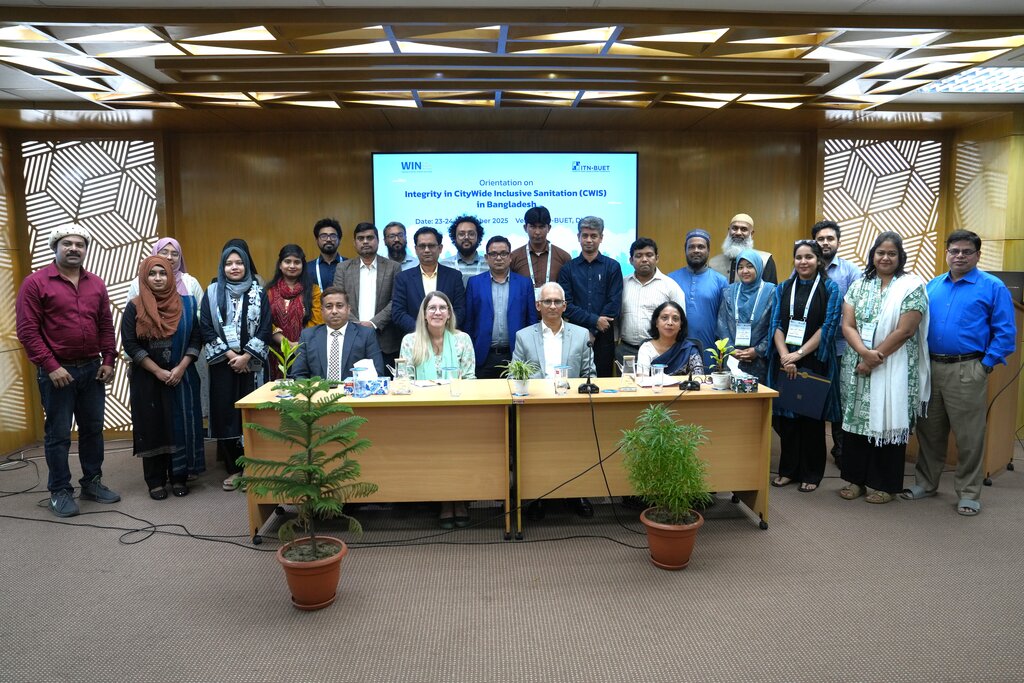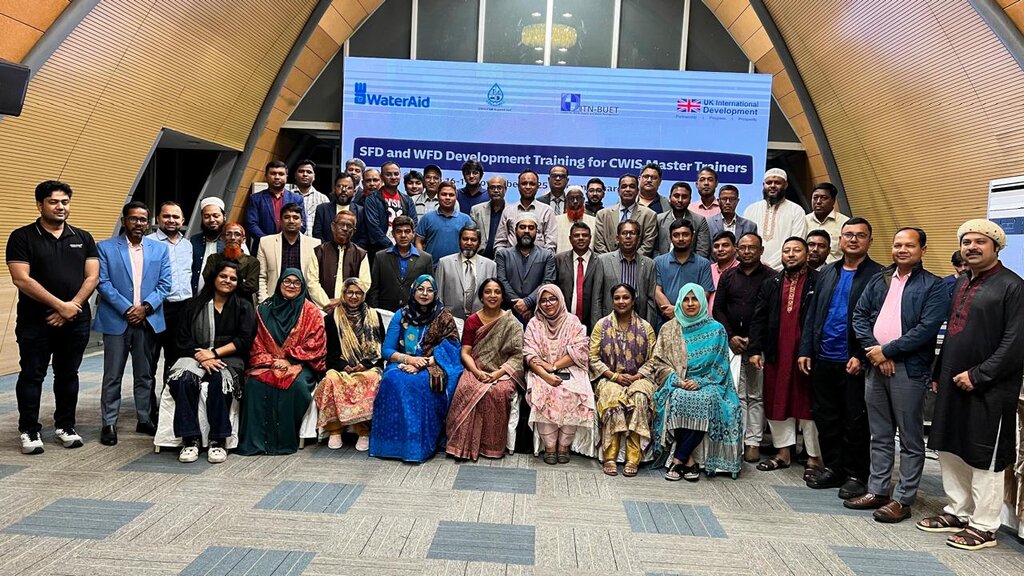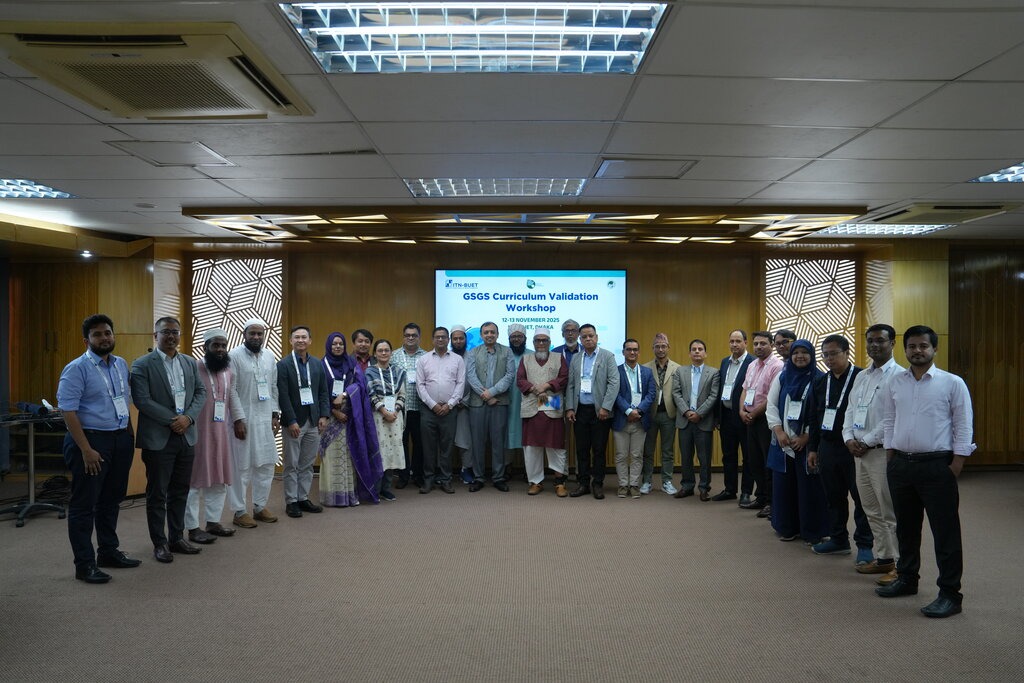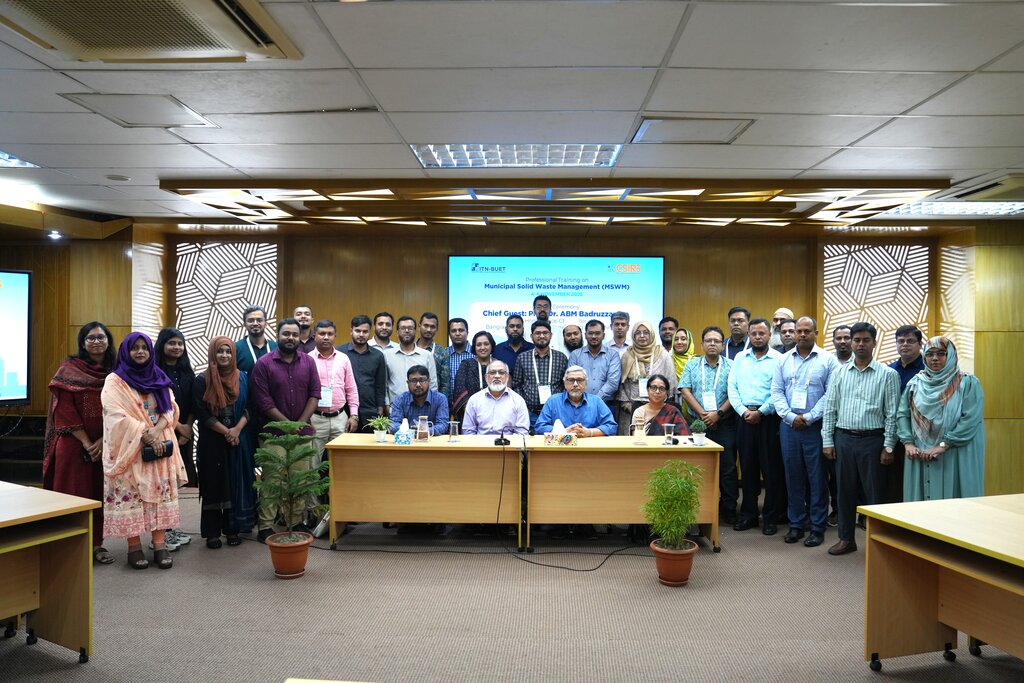“Being a country with a large population comes with its merits and demerits. It is essential to contain, eliminate and manage the amount of waste we generate, and in doing so, the role of the public representatives is of utmost importance.”
said Mr. Md. Tazul Islam MP, Honorable Minister, MoLGRD&C.
The Policy Support Branch (PSB) of the Local Government Division organized a Dissemination Workshop on National Action Plan for Implementation of Institutional and Regulatory Framework for Fecal Sludge Management (NAP for IRF-FSM) for Paurashava in collaboration with ITN-BUET and UNICEF on 18 October 2020. ITN-BUET is the technical partner for developing the NAP for FSM.
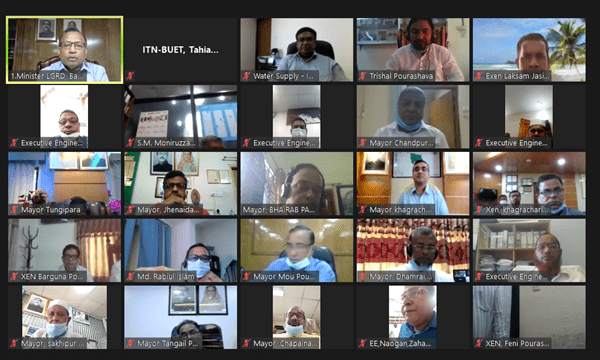
The workshop was organized through the Virtual Platform “Zoom”, where Hon’ble Minister shared his ideas, concerns, and possible ways of mitigations for managing fecal sludge in the country in a sustainable way following the National Action Plan for FSM with 50 Paurashava Mayors.
Mr. Tazul Islam acknowledged waste management in the country to be a priority commitment under SDG 6.2. He urged the Paurashavas to work together in building up a developed nation by overcoming challenges and becoming more independent and autonomous. The Minister stressed on strengthening the financial capacity of Paurashavas and gave assurance to provide any logistic support needed for implementing FSM Action Plan by 2030.
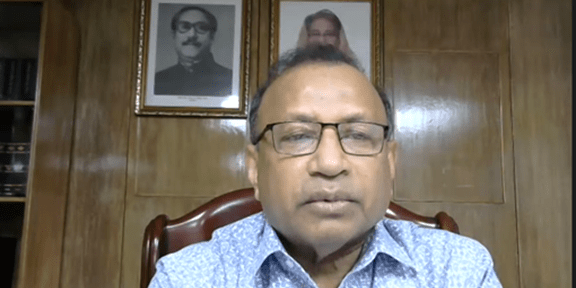
Prof. Dr. Tanvir Ahmed, Director of ITN-BUET and Professor of Civil Engineering Department of BUET, was the keynote speaker in this workshop. He shared a brief overview of the National Action Plan for FSM for Paurshavas. Dr. Ahmed emphasized the importance of high-level political commitment for implementing the National Action plan and achieving SDG 6.2 target. He further pointed out that attaining SDG 6.2 at the paurashava level will significantly improve the national sanitation coverage indicators.
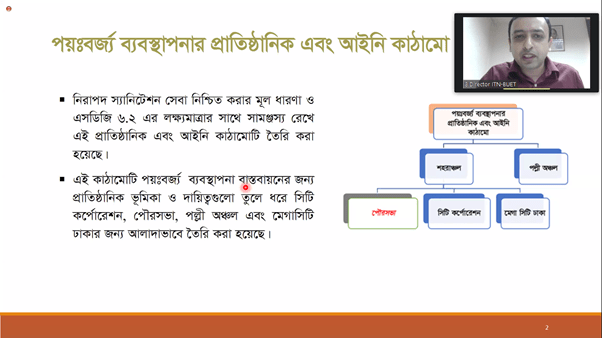
“SDG is a much bigger challenge than MDG”– said Mr. Dara Johnston, Chief, WASH section of UNICEF Bangladesh. He shared a presentation describing the current scenario of safely managed sanitation in the country and its way forward.
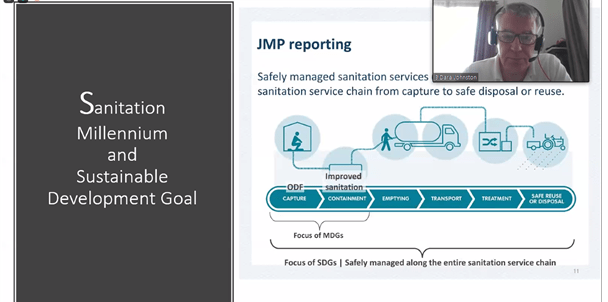
Md. Saifur Rahman, Chief Engineer of the Department of Public Health Engineering (DPHE) talked about the ongoing activities or projects supporting the implementation of FSM, in his speech. Mr. Rahman added that to progressing the activities of NAP in light with the framework proposed at NAP, DPHE with the approval of LGD has already established CWIS-FSM support cell that will be officially launched on November, 2020. He also mentioned that a feasibility study of 61 towns on fecal sludge management and solid waste is underway and is expected to be finished by June 2021. He emphasized that mechanized treatment process of sludge will require less space and time ensuring a better quality of treated water and sludge. The DPHE is considering more state-of-the-art technologies for sludge treatment.
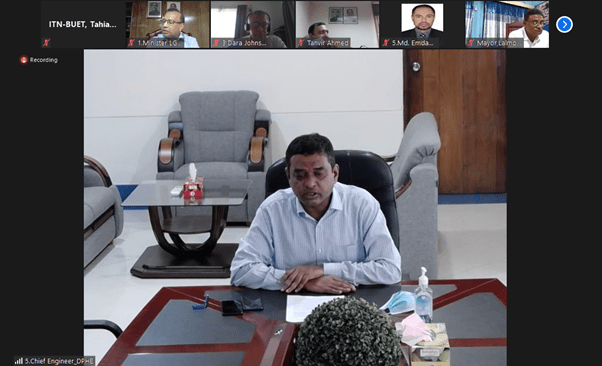
Mr. Md. Emdadul Huq Chowdhury, Joint Secretary, Policy Support Branch, Local Government Division moderated the open discussion, where the Mayors of Paurashavas talked about their challenges regarding land acquisition for treatment plant construction, procurement of desludging equipment, and implementation of development projects for ensuring FSM in their cities.
Mr. Helal Uddin Ahmed, Senior Secretary LGD chaired the workshop. Mohammad Ibrahim, Additional Secretary of (Water Supply), LGD was one of the speakers in the workshop. Over 135 participants, including Mayors of different Paurashavas, engineers, and sub-assistant engineers, officials of ITN-BUET, DPHE, UNICEF, PSB and LGD attended this event.


